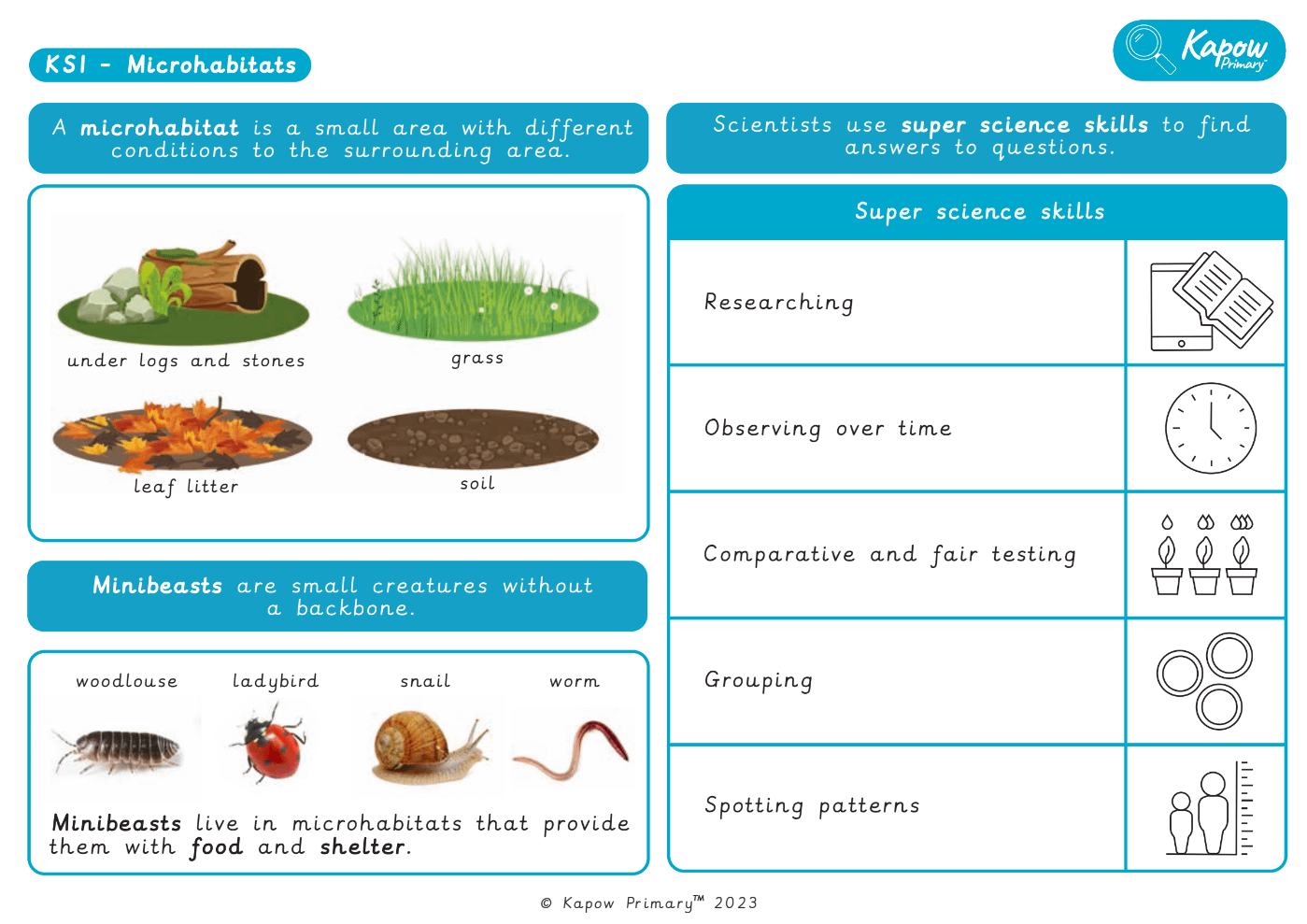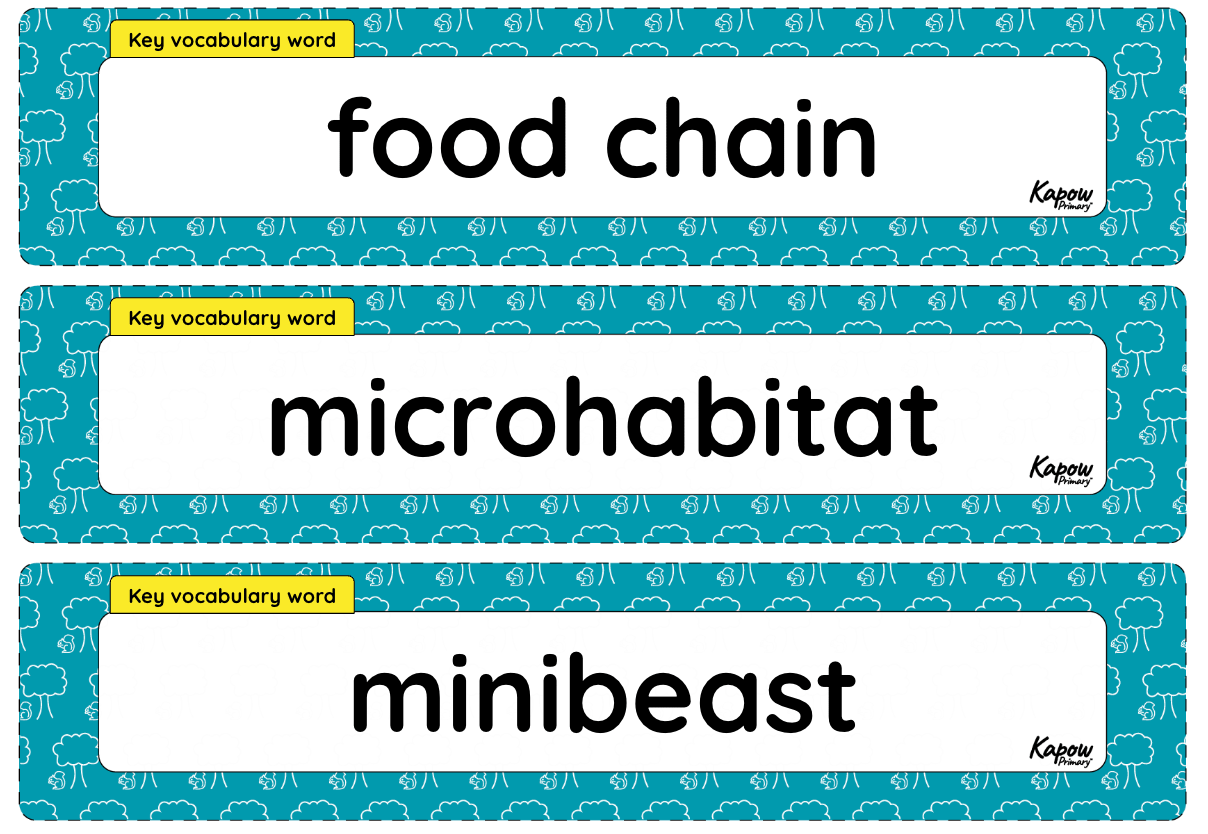Living things: Microhabitats
Asking questions about minibeasts and using scientific enquiry methods to find answers.
New statutory RSHE guidance is here. We’re creating our brand new RSE & PSHE scheme ready for September 2026. Learn more
- Subjects >
- Science >
- Key stage 1 >
- Year 2 >
-
Living things: Microhabitats
Unit outcomes
Pupils who are secure will be able to:
- Identify and name a variety of plants and animals.
- Recall that minibeasts live in microhabitats.
- Describe microhabitats and their conditions.
- Describe how microhabitats provide for the basic needs of animals and plants.
- Describe the job role of a botanist.
When working scientifically, pupils who are secure will be able to:
- Group minibeasts and create simple classification keys.
- Ask questions and recognise that they can be answered in different ways.
- Gather and record data and use it to answer questions.
- Plan what observations to make in an experiment.
- Order the steps of a method.
- Describe the appearance of flowering plants.
- Use an identification chart to name flowering plants.
Please note that Kapow Primary Science lessons are designed to be 1 hour and 30 minutes long to reflect the requirements of a core subject.
Suggested prior learning
Living things: Habitats
Get startedLessons
Lesson 1: Identifying and classifying minibeasts
Working scientifically
- To classify a variety of minibeasts.
Lesson 2: Introduction to scientific enquiry
Working scientifically
- To recognise how scientists answer questions.
Lesson 3: Minibeast hunt
Knowledge
- To recognise that living things live in habitats to which they are suited.
Working scientifically
- To gather and record data to answer a question.
Lesson 4: Planning an experiment
Working scientifically
- To ask questions and plan how to carry out an experiment.
Lesson 5: Woodlice experiment
Working scientifically
- To carry out an experiment and record data in a table.
Lesson 6: What is a botanist?
Knowledge
- To identify a variety of flowering plants.
Science in action
- To understand the role of a botanist.
Key skills
Key knowledge
Related content
Unit resources
Cross-curricular opportunities
English: Reading – comprehension; Writing – vocabulary, grammar and punctuation.
Geography: Geography skills and fieldwork.
British values: Mutual respect.



